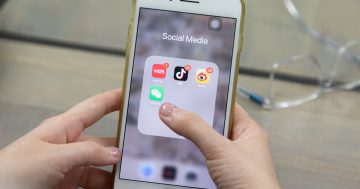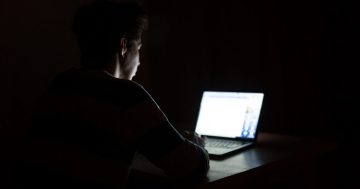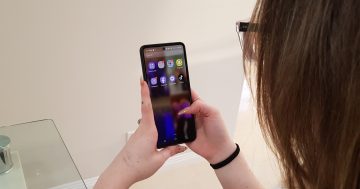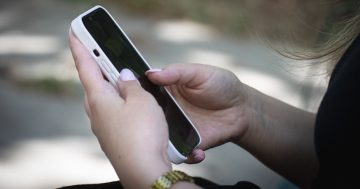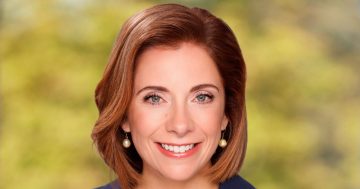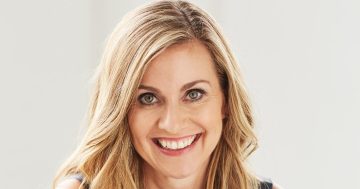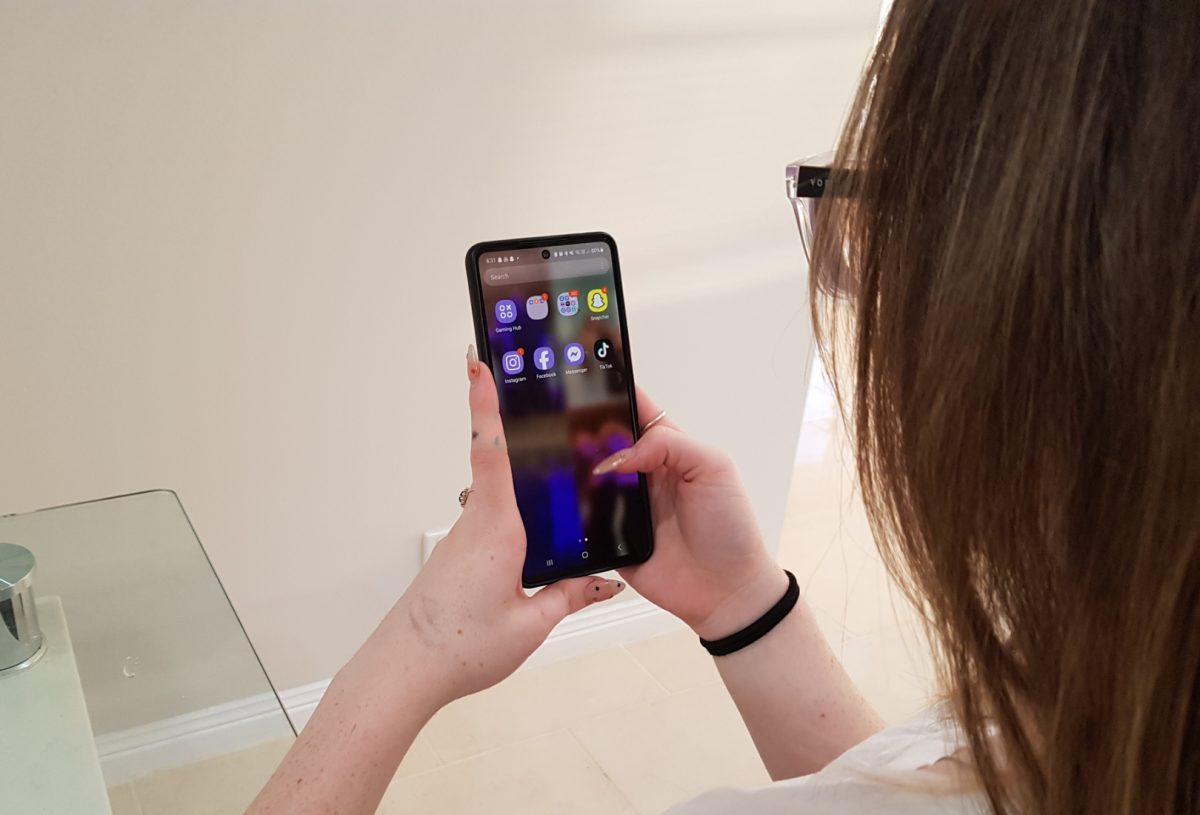
Navigating social media with kids has become one of the toughest parts of parenting today’s kids. Photo: Kellie O’Brien.
“But all my friends are on TikTok. Why can’t I?”
It’s a familiar chant throughout Australian households containing pimple-faced teens looking to join social media platforms where they can make “friends”.
I thought that’s what playgrounds were for.
And some days the incessant asking to join Instagram or TikTok is akin to the days when they were at the playground, face down in the dirt, screaming that they want just “five more minutes on the swings” before you go home.
As a parent of teen girls, navigating children and social media has to be among one of the toughest parts of being a parent today.
In garnering thoughts from parents in the midst of the battle, the level of confusion about the right path is high, with many knowing it’s a useful tool, but concerned for the negative impacts it can have on a developing mind.
The consensus is that social media is inevitable, but we need to find ways to protect children from online harm.
For now, the social media platforms require users to be 13 years or older before they can create an account.
However, when a police officer educating an Illawarra Year 6 class with children under 13 about safety online asked the class who had their own social media accounts, hands went up.
Schools have been great at developing not just social media awareness, but online awareness for kids as young as primary school age.
Children are then encouraged to talk to their parents about the topic and, as a family, implement some rules – and even sign family contracts.
In our house, that’s meant devices are used in open areas, not bedrooms.
They set timers for themselves to avoid overuse.
And if anything questionable appears on their screen or bullying starts, they’re to let us know immediately.
And they have.
But as some parents pointed out, limiting and policing social media use can still be a minefield.
Even for us, some of those rules have slowly changed as our girls migrated from iPads to phones that they carry with them everywhere.
Now, a ping from Snapchat warrants an immediate response, with acquaintances receiving a photo of the ceiling (don’t ask, I don’t understand) and friends receiving a duck face photo.
The problem as a parent is when they’re exposed to adult content, grooming, online bullying, fed misinformation or content that leads to poor mental health and self esteem.
This month the Australian government announced a $6.5m commitment to trial age-verification programs to restrict children’s exposure to such content, which could include social media.
State governments are also exploring changing the age limit from 13, with NSW premier Chris Minns wanting to see it at 16, while Queensland premier Steven Miles says 14.
My daughters are 13 and 16 years, so I hit this age bracket square in the red Pinterest icon.
My question is: Is it up to governments to control this and are age-verification programs the right answer?
Do I really want to be sharing my daughters’ private information? And what will that information be used for?
Many parents weren’t opposed to government intervention, but didn’t want it to be used to let parents off the hook.
Sure, while the chorus of “but my friends are on it” might not change, having regulations gives you something to work within when talking to your children.
It’s no different to kids watching PG, M or MA15+ movies. It provides a guide and conversation point with children as to whether it’s appropriate or not.
That’s not to say kids won’t push the boundaries.
As one mum of kids not yet on social media pointed out: “We have regulations around nicotine, alcohol, driving – things that pose a risk to everyone, but which are arguably more dangerous to a developing mind. There is evidence to support the notion that social media falls into this category.”
Like smoking or alcohol, some kids will still break the rules.
But the real key, I believe, lies in the relationship you have with your kids and your ability to have the tough conversations about the risks and consequences.
Again, no different to the conversation you might have around smoking and alcohol.
My girls weren’t allowed on social media until they were 13 and, even then, I was reluctant.
We still have a ‘no TikTok” policy in this house, partly because I don’t use and am not familiar with the platform.
When it comes to answering the question of whether 16 is the magic age, I’m torn.
You see, the problem with picking random ages is that every child is different and every family situation is different.
Where one child at 13 might be open with their parents when they experience something online and have the maturity to deal with it, another at 16 might not.
Then we have the family situation.
I’m fortunate my husband and I are quite tech savvy – but even we don’t profess to be experts.
Even tech savvy parents admit their children will soon know their way around devices better than them.
Other parents are starting on the back foot, with social platforms being “over their head”.
It begs the question: Do we as parents need to be educated too?
Is it not so much about trying to stop or ban social media use, or even adding age-verification tools, but rather ensuring we’re all better educated at navigating it together?
In the end, yes, maybe these age restrictions would help parents a little further in managing this minefield we’ve been gifted as a parent during this time in history, but there also has to be a responsibility as a parent to talk to your kids about social media and the paths it can take them down – good and bad.










